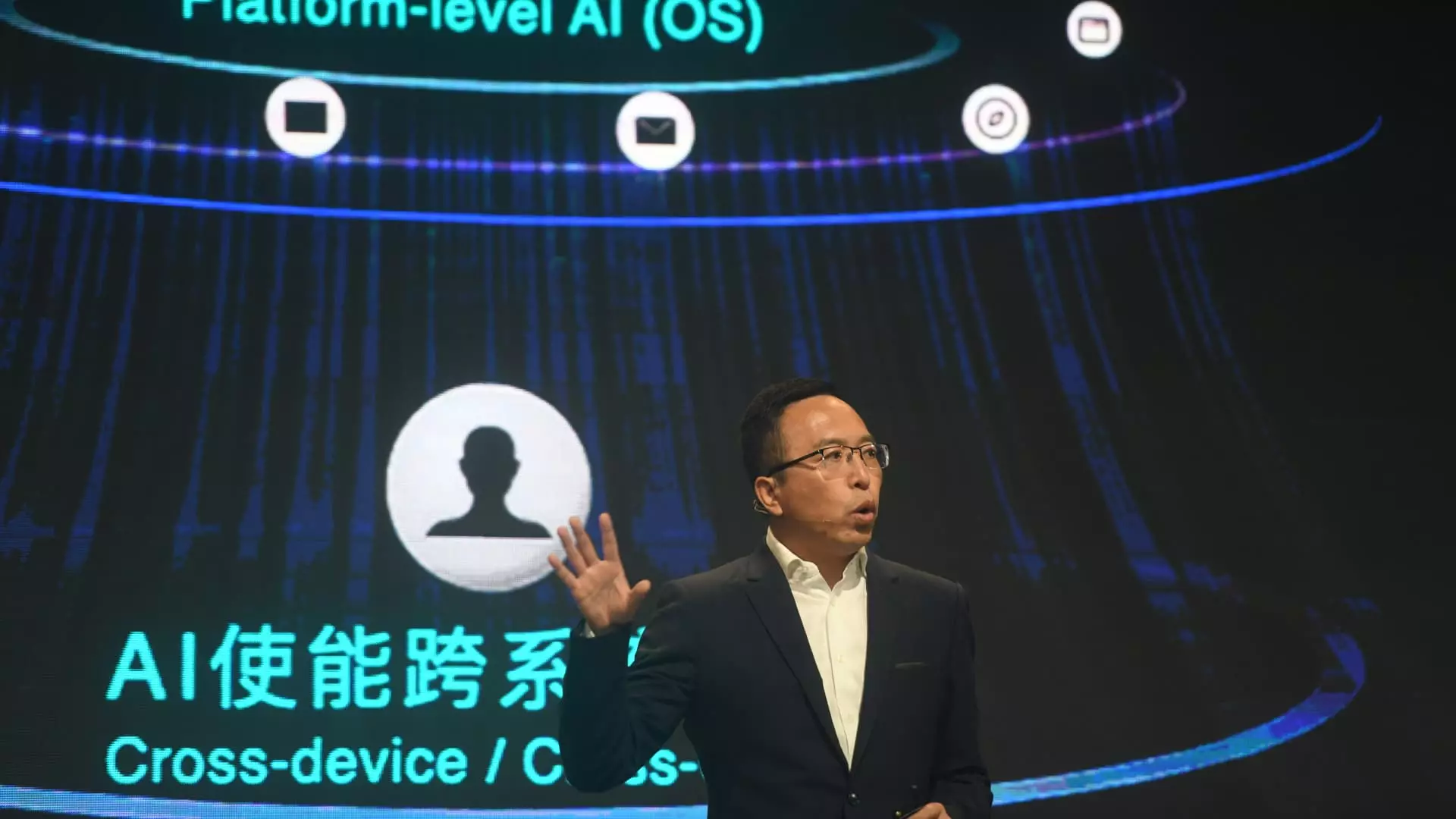The smartphone market is witnessing an era of rapid transformation, particularly in China, where domestic companies are at the forefront of integrating artificial intelligence (AI) features into their devices. This advanced technological push is not only enhancing user experience but also creating significant competition for global players like Apple, which is facing mounting pressures to innovate amid shifting market dynamics.
Chinese smartphone manufacturers have recognized the value of AI as a selling point. Companies like Huawei, Honor, and Xiaomi are developing proprietary operating systems that leverage AI to provide users with unique functionalities. This move is largely in response to U.S. sanctions against Huawei, pushing the company to innovate independently with its HarmonyOS, which eliminates its previous dependency on Google’s Android. The latest version of HarmonyOS boasts features such as text translation, note-taking, and photo editing powered by in-house AI, positioning it as a robust competitor to established platforms.
The integration of AI does not stop with Huawei. Honor has introduced a new version of its Magic operating system designed to act as an AI assistant. With capabilities that allow the device to respond to vague voice commands—for instance, ordering coffee or sending documents—these advancements indicate a quantum leap in the functionality of smartphones. Such features could entice consumers who are currently loyal to brands like Apple, particularly due to the seamless experience these AI features intend to provide.
The competitive landscape has shifted noticeably, with Canalys research indicating that Apple has slipped out of the top five smartphone providers in China. This decline emphasizes the growing prowess of local brands that are innovating at a rapid pace. Honor’s collaboration with Baidu for certain AI functions reflects a larger trend of domestic companies leveraging local technology partnerships to enhance their offerings. This localized approach not only gives them an edge but also caters directly to the needs of Chinese consumers.
Moreover, the upcoming launch of Honor’s Magic 7 smartphone, featuring Qualcomm’s Snapdragon Elite 8 chip, signals a commitment to maintaining high standards in hardware while ensuring that AI plays a pivotal role in user interaction. This simultaneous focus is critical, as it showcases a combination of robust hardware and software capabilities, a strategy that Apple must respond to in order to regain its footing.
Apple’s recent innovations, set to be unveiled with Apple Intelligence, do not seem to be aimed at the Chinese market, further isolating the company as competitors push forward with AI features that engage local users. The healthcare, data security, and cloud services discussions happening between Apple CEO Tim Cook and Chinese officials illustrate an acknowledgment of the complex regulatory landscape that Apple must navigate. In contrast, local brands operate with a different level of agility in adapting to consumer preferences and regulatory demands.
The implications for Apple are significant. While current indications suggest that its decline in revenue from Greater China is manageable, the necessity for innovation is paramount. The average selling price of Apple’s iPhone 16 Pro Max has already witnessed a decline in the second-hand market—a trend that could be exacerbated if alternatives from Chinese manufacturers gain traction.
Furthermore, Apple’s absence from the foldable device market—a segment that has captured interest, particularly among tech-savvy consumers—could alienate certain demographics leading to longer-term repercussions in market share and sales.
Looking ahead, Apple is scheduled to disclose its quarterly results, which will serve as a crucial benchmark for analyzing its performance within this rapidly evolving landscape. The tech giant must establish a clear strategy that integrates AI features that resonate with the Chinese consumer or risk ceding more ground to its competitors.
As domestic players like Honor and Xiaomi continue to push the envelope with their AI-driven products, Apple must leverage its significant resources to innovate, keeping an eye on trends that may dictate consumer preferences in the near future. Only through proactive engagement with local technologies and consumer demands can Apple hope to reclaim its status in a market that is increasingly defined by local ingenuity and advanced technological integration.
The trajectory of China’s smartphone industry reflects not only a technological renaissance but also a compelling competitive narrative that Apple cannot afford to overlook. The landscape is changing, and the evolution of AI in smartphones is central to the future battles in the tech sector.

